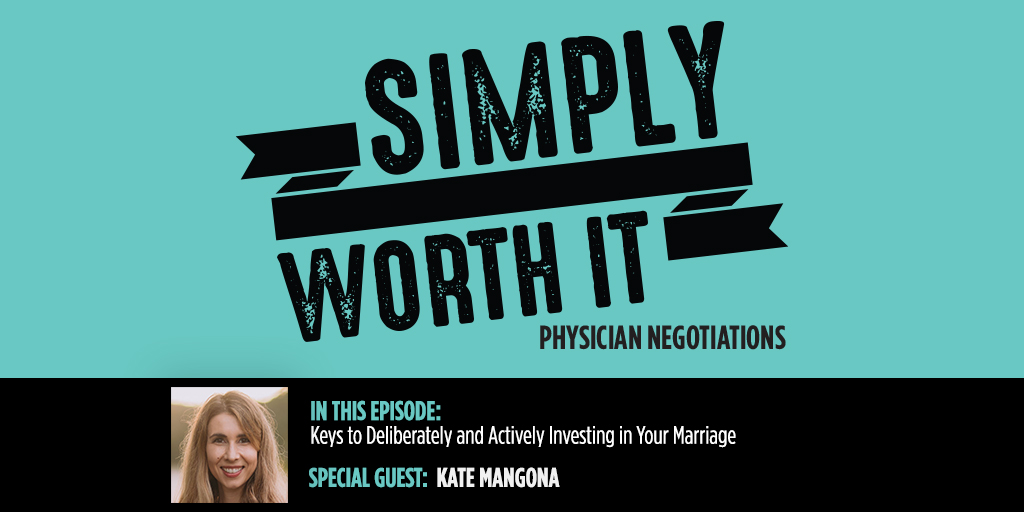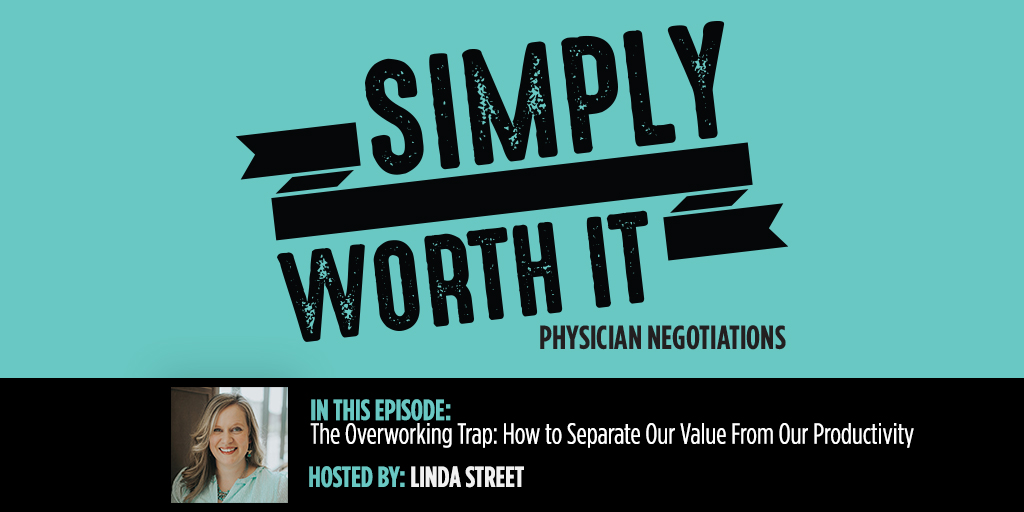The Danger of All-or-Nothing Thinking in Negotiation: How to Shift Your Mindset & Implement a Strategy That Guarantees a Win for Everyone
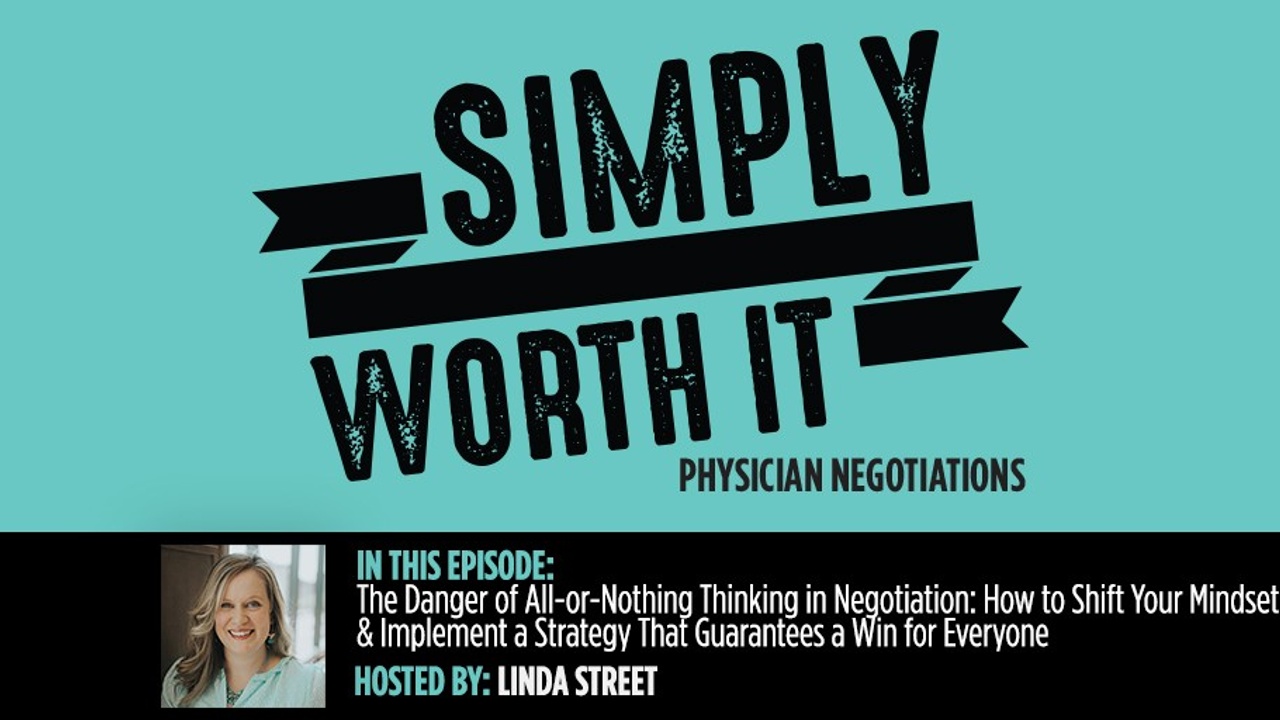
Human beings are programmed to see the world in A or B options, and this fosters a dichotomous way of thinking that works against us.
When we show up to a negotiation with this mentality in tow, we risk leaving massive wins on the table. In a negotiation, it’s not just option A or option B - there’s an entire alphabet available to us, and we can access it if we shift our thinking.
How do we break from the self-imposed limitation of dichotomous thinking? What are some of the amazing wins we can get when we’re not so fixated on one predetermined option?
In this episode, I’m going to talk about the danger of thinking in absolutes, how to approach your negotiation with an open mind and why that will benefit you immensely.
Three Things You’ll Learn In This Episode
- Why a negotiation doesn’t have to be a battle between their win and ours
If the floor is their offer and the ceiling is our ideal offer, how do we tap into the range of options, opportunities and wins between those t...
The Great Resignation: Are the Toxic Traits of Your Current Job Following You to the Next One?
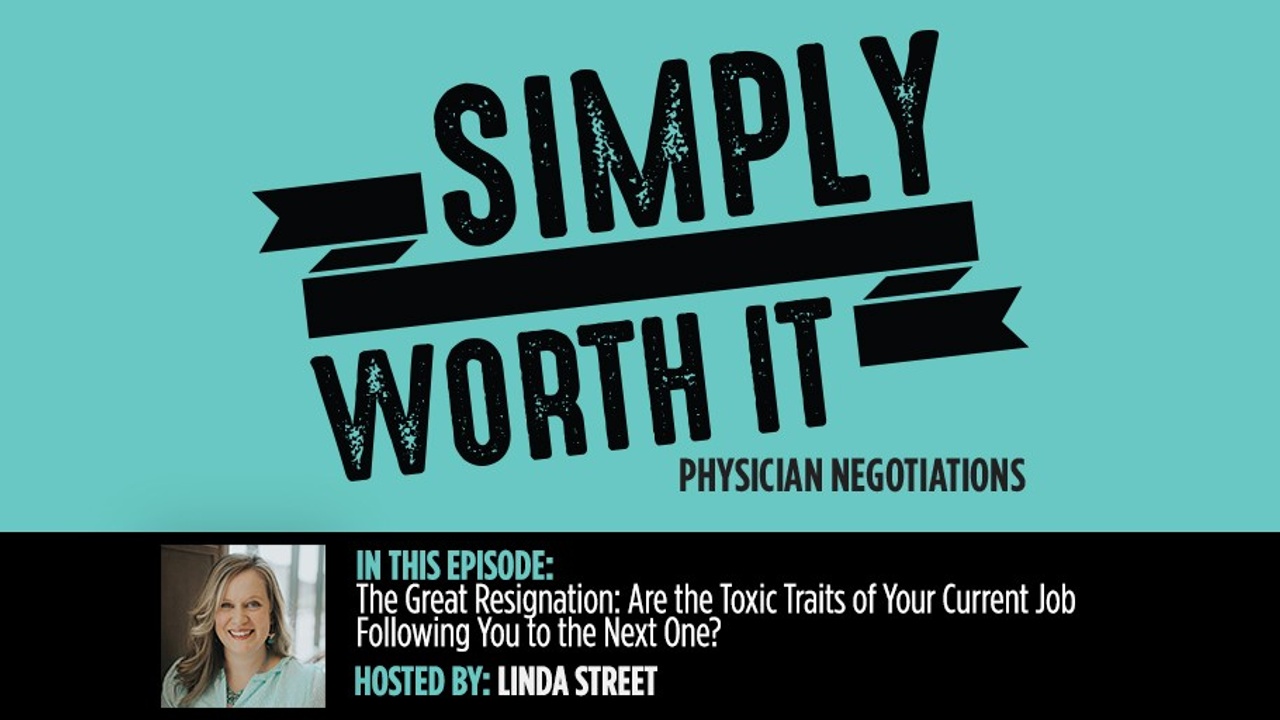
As the survival instinct of the pandemic fades and more people start considering if their jobs are really serving them, the resignation of at least 30% of the workforce is anticipated.
But before we make any move, we have to make sure the things that weren’t serving us in our last job don’t follow us to the next one. If we have an unhealthy relationship with our work, no job change will bring us closer to a career that serves us.
How can we tell if the toxic trait we are experiencing at the job isn’t something internal? Why do we need to overcome workaholism if we want a career that serves us?
In this episode, I talk about why establishing a healthier relationship with our work will help us make the right decisions in our career path. 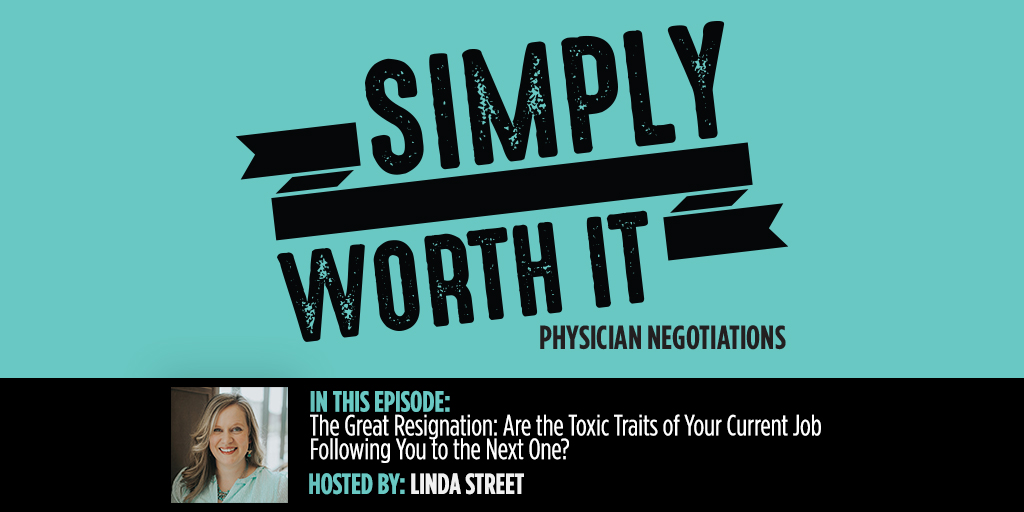
Three Things You’ll Learn In This Episode
- The key mindset shift that will help us evaluate the next opportunity clearly
Why do we have to take ownership and get to a neutral headspace about our current situation before we write that resi...
The Powerful Strategy That Will Turn Any Negotiation Obstacle Into an Opportunity
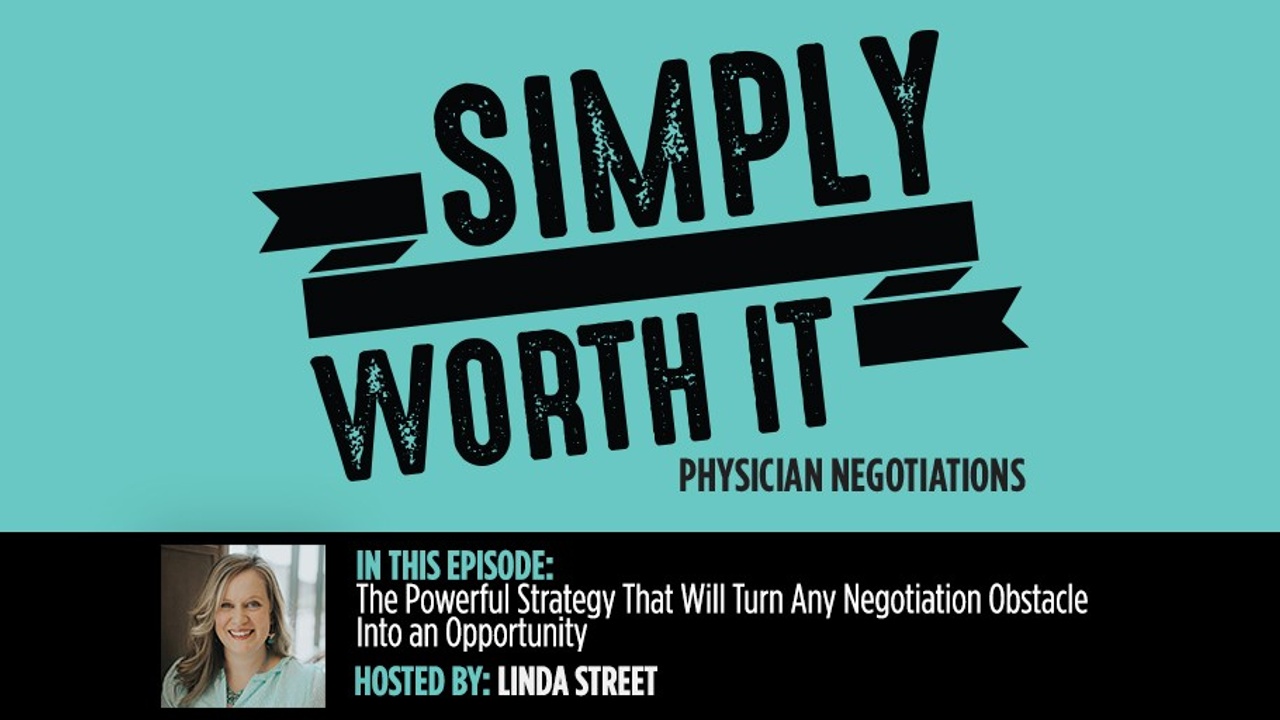
In any negotiation, we’re better equipped and poised for success when we prepare for all the ways our requests could be shot down before the conversation even begins.
Walking into a negotiation unprepared puts us at an immediate disadvantage - and in the worst position to advocate for ourselves. By deliberately and strategically crafting our responses ahead of time, we’re more likely to get the package we want.
In the things that you’re asking for, what are the reasons the other side could say no, and how can you turn that into an opportunity for mutually beneficial solutions that work for everyone?
In this episode, I discuss how to work through the most common negotiating hurdles, and how to quickly pivot when we don’t get the answer we want.
Three Things You’ll Learn In This Episode
- Why it’s smart to prepare for obstacles ahead of time
It’s human instinct to get defensive when someone says no. Why is this response counterproductive to what we want to accomplish in ...
Earning What You're Worth Isn't Greedy: How to Overcome a Harmful Limiting Belief

Women have been conditioned to believe that wanting a salary that reflects our value is an act of greed. This is not a mindset built for optimizing your success.
While there are societal constructs that hold us back, carrying around beliefs that don’t serve us is a huge barrier too.
We have enough barriers to contend with already so taking our self doubt off the list makes the path to what we want a lot smoother.
How do we combat the belief that wanting a better package is selfish? In the final part of our three-part series, I talk about how to bust through a huge internal obstacle to earning your full potential, and stop feeling guilty about negotiating for a better package.
Three Things You’ll Learn In This Episode
- How to stop letting societal constructs define us
We can’t fix societal constructs overnight, but refusing to believe them ourselves does empower us. How do we start investing in beliefs that actually serve us? - Why personal gains and social gains don...
Optimize Your Negotiating Hand by Pivoting from Confusion to Clarity
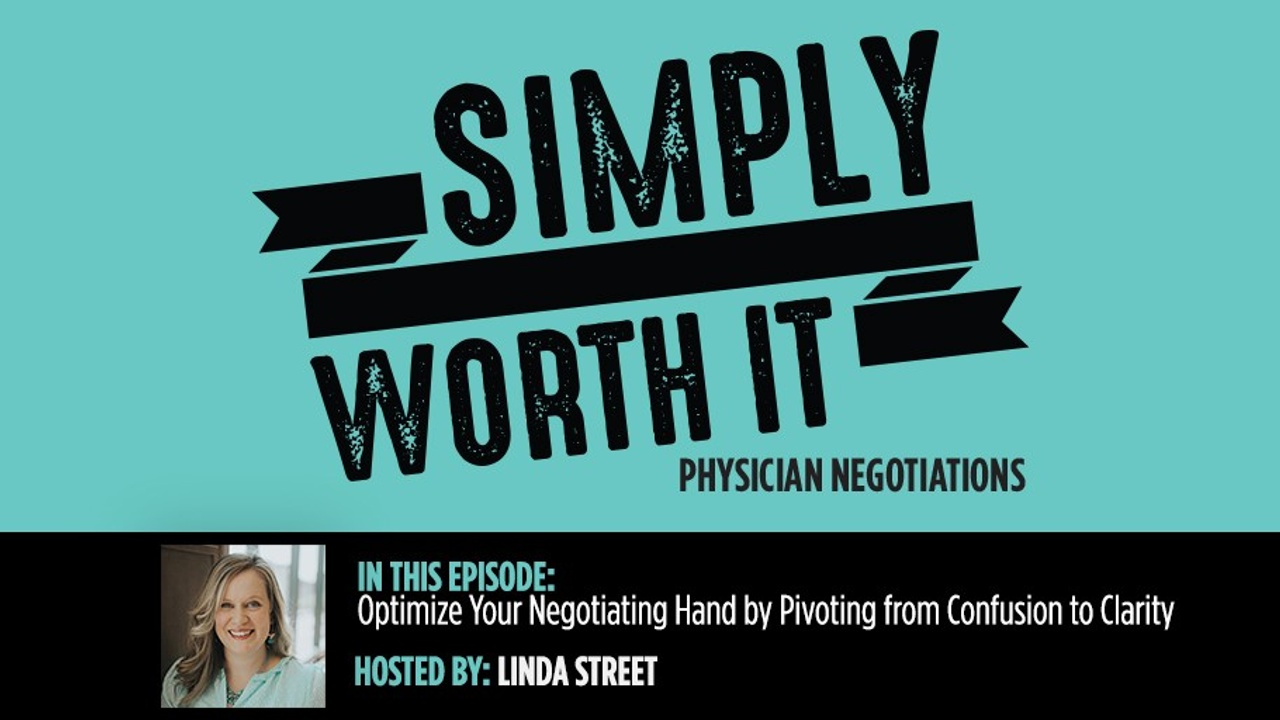
As female physicians, we are battling systemic barriers that collectively keep us from earning millions more, but there are also factors we have a lot of control over.
Confusion is one of them.
We all know that sitting in confusion is not helpful, but we do it anyway, and set ourselves back significantly in the negotiating process. An energy and mindset of confusion is not where we need to be. We can’t achieve anything useful from a headspace of indecision, hesitation and uncertainty.
What steps can we take to remove the obstacle of confusion from our path?
In this episode, we dive into the second part of our three-part series on breaking down the barriers holding you back from earning what you should be, focusing specifically on confusion.
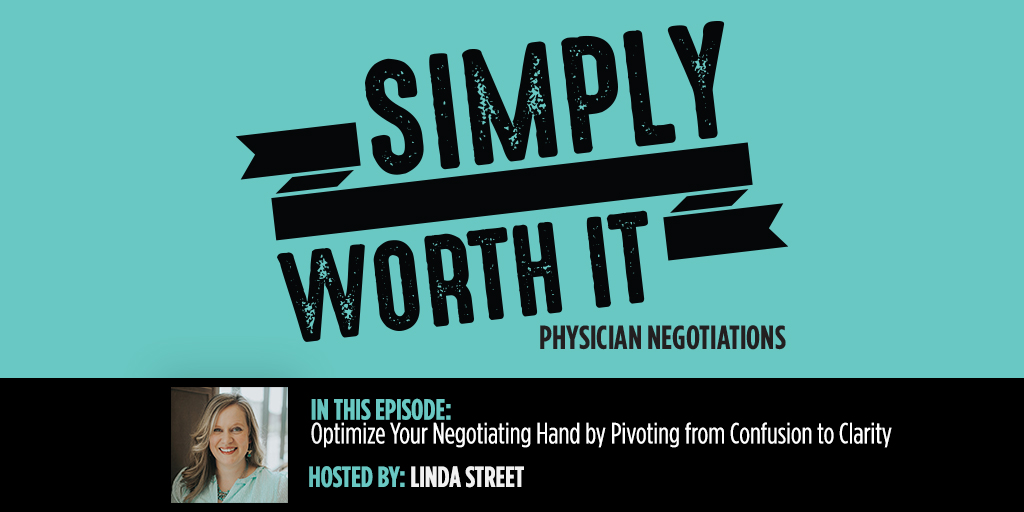
Three Things You’ll Learn In This Episode
- Why confusion sets us back
The problem with confusion is that it’s an indulgent emotion, it feels productive but it’s not. It may feel like we’re pushing forward and getting something acco...
Undervaluing: The Internal Obstacle to Your True Earning Potential
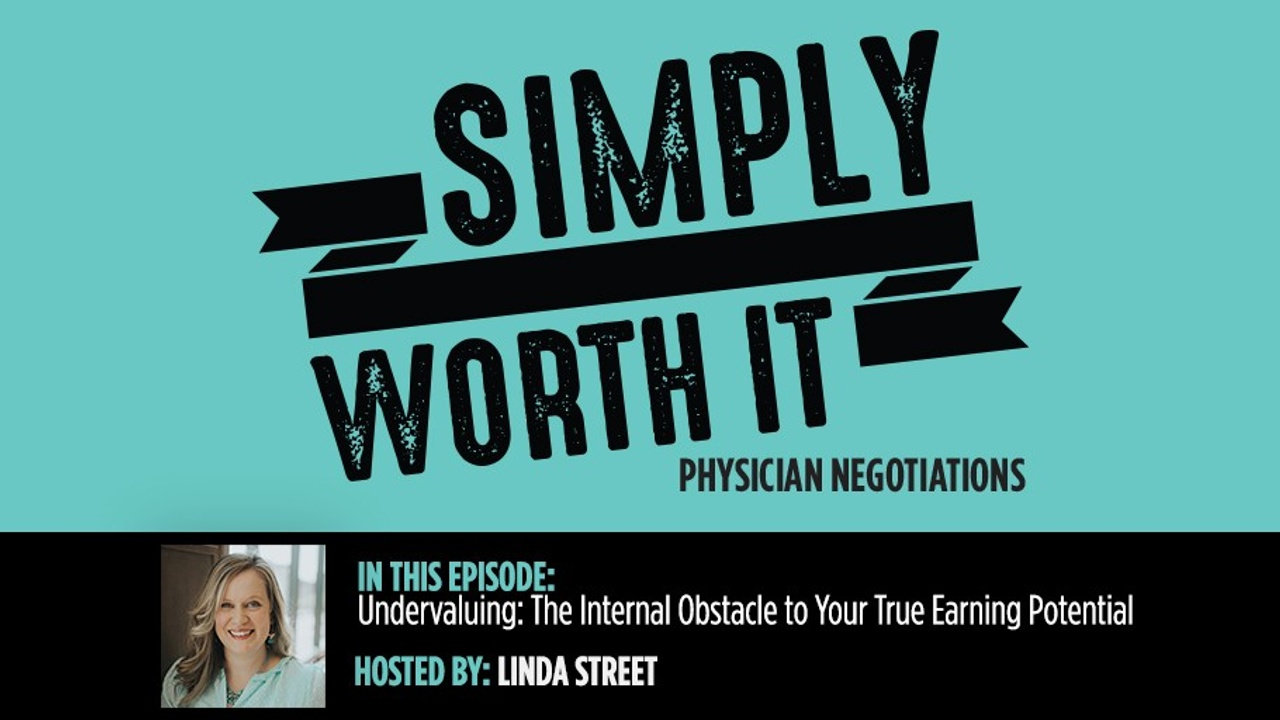
If we don’t know what we’re up against in the negotiation process, we can’t strategize a path to a package that reflects our worth.
We need to be able to go to bat for ourselves, and that’s difficult to do when the biggest obstacle is what we believe about ourselves.
How do you go from worrying that you don’t offer enough to feeling like you do? How do seemingly benign beliefs cascade into us robbing ourselves of our potential?
In this episode, we kick off a three-part series where we talk about the biggest obstacles between you and your dream package. Today, we talk about the negative effects of undervaluing ourselves. 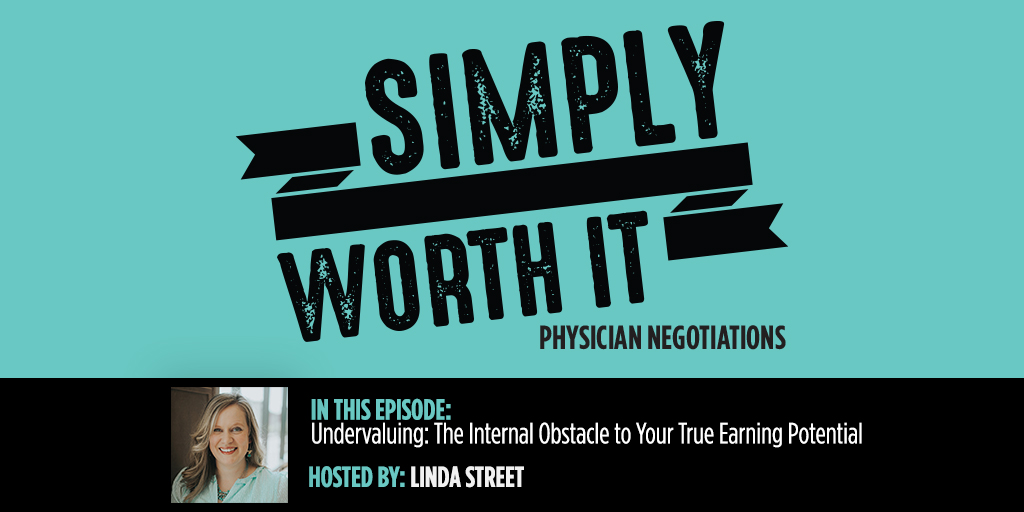
Three Things You’ll Learn In This Episode
- How to set the tone of every negotiation
The way we think about ourselves sets the standard for how other people treat us. We need to be clear on what we are and aren’t willing to work for, place boundaries around those things and advocate for them consistently.
- The power of knowing your value
If you’re showi...
Start with No: The Dangers of Saying Yes by Default

Saying yes to everything is a seemingly harmless act and the default response we’ve been conditioned to give, but does it actually serve us? When I look at this issue through the lens of physicians in the workforce, I can see the negative effects.
Most of us struggle to say no to things that don’t align with us and this is evident in the alarming levels of physician burnout we’re seeing.
As we become more deliberate about going after what serves us, we have to really get acquainted with the word “no”. It has to become our default answer.
What questions do we need to ask ourselves before we say yes to anything? How do we honestly and deliberately evaluate our opportunity cost?
In this episode, I talk about how to overcome the struggle with saying no, and how to carry that into our negotiations.

Three Things You’ll Learn In This Episode
- Why saying yes by default is a flawed approach
Most of us have been conditioned to have a default “yes” answer to everything we’re a...
Group Negotiations Are Actually a Good Thing...Here’s How to Win
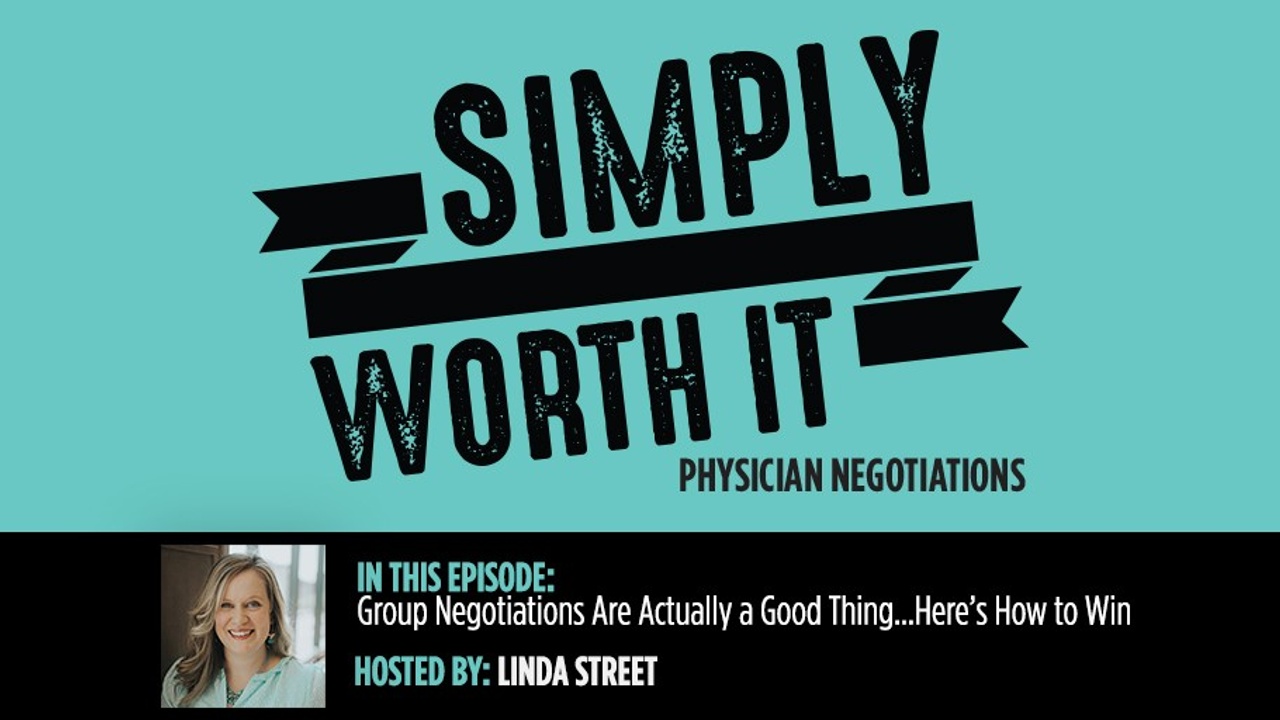
Group negotiations are something we’re starting to see more of in the post-2020 healthcare landscape.
While it presents a whole new layer of complexity for physicians, negotiating as a collective can actually work in our favor. It’s still possible for us to negotiate contracts that reflect what we’re worth, and we can even achieve wins for entire departments and specialties.
This doesn’t happen in a vacuum, though. We need to do our homework.
How do we evaluate what’s most important and take everyone’s priorities into account? In this episode, I talk about how to navigate a group negotiation and set everyone up for success.
Three Things You’ll Learn In This Episode
- Why preparing for the negotiation as a group protects us
Group negotiations require as much preparation as individual ones. If the group shows up unprepared, you’re leaving the negotiation up to your reactionary skills, and that’s not ideal. - How to get on the same page about what matters
Different people...
Keys to Deliberately and Actively Investing in Your Marriage w/Kate Mangona
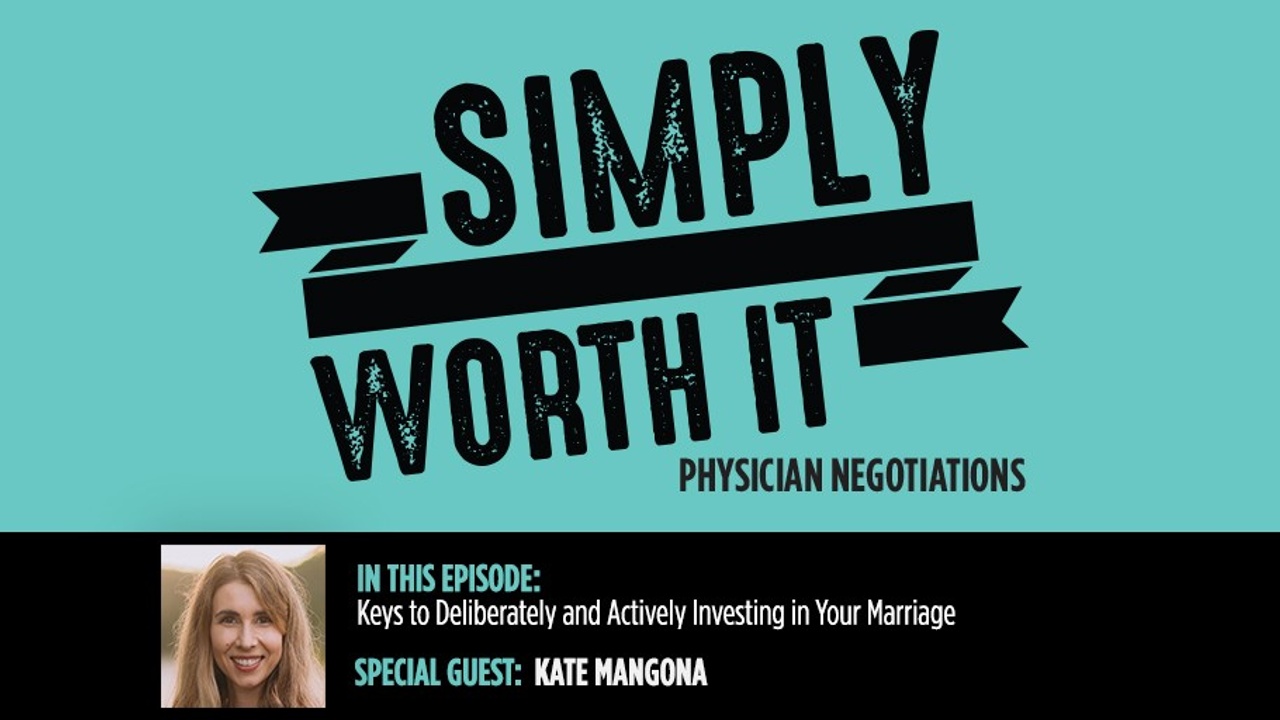
We spend a lot of time on the specifics of our contracts, but today we’re going to pivot and focus on the reason behind our negotiating efforts - the personal priorities that drive our decisions.
In the negotiating process, we really have the opportunity to tweak our schedules so they work for us, our families and our spouses. Sometimes it feels like the job invades every part of our lives, and we end up with very little time to nurture our relationships.
How do we make time for those relationships, and plan ahead for it in the negotiating phase? What are some of the side effects of being overwhelmed by all our responsibilities?
In this episode, I’m joined by pediatric radiologist, relationship coach and host of Medicine, Marriage and Money, Kate Mangona. She shares how she prioritizes her marriage as a busy doctor, entrepreneur, mom and physician’s wife.
Three Things You’ll Learn In This Episode
- Why attending physicians can negotiate for a healthier work-life balan...
The Overworking Trap: How to Separate Our Value From Our Productivity
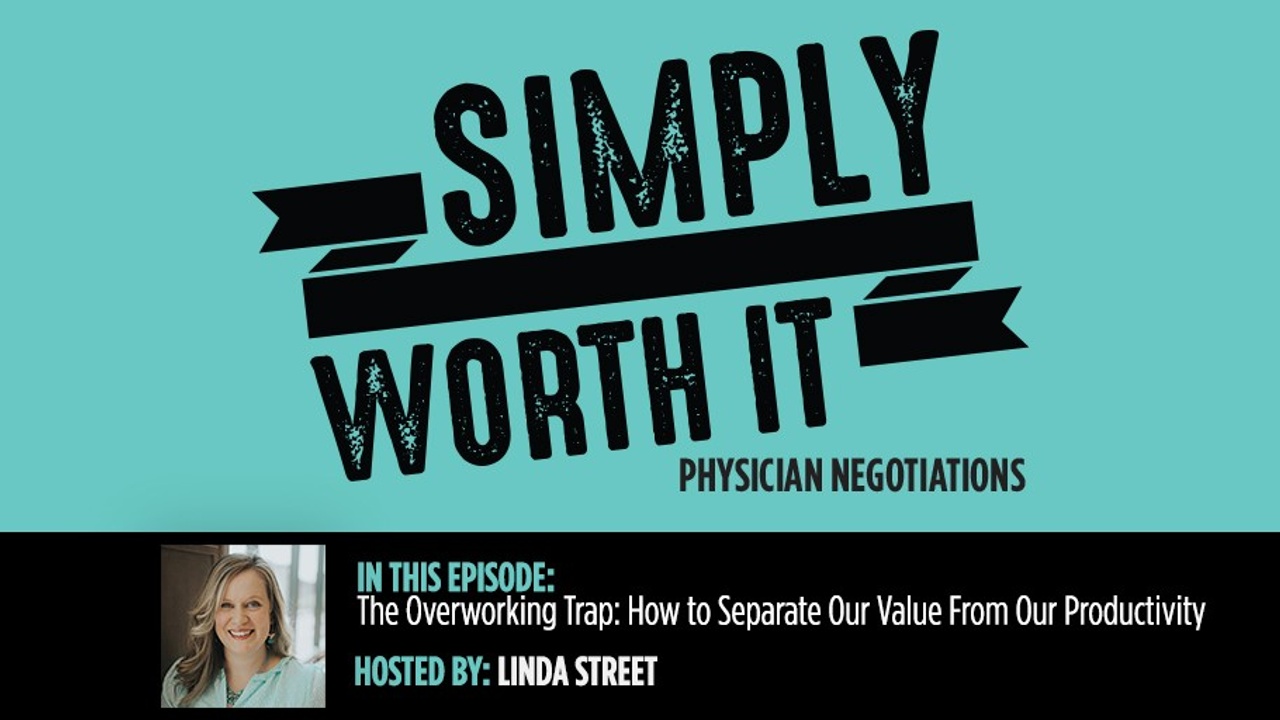
Most high achievers were raised to believe that hard work will always get rewarded. This belief is untrue and harmful, and the root of the burnout and overworking culture in medicine.
We carry the belief that being tired all the time is the price we pay for success and excellence. We put ourselves under pressure to do it all, and work jobs that weren’t even designed with our wellbeing in mind.
Attaching our value to our productivity and overworking has tripled our risk of disease and mortality. For female physicians, making a change is literally a matter of life and death.
How do we challenge the thoughts we have around our value when it comes to productivity? What are some of the problems within our industry caused by the disparity between genders?
In this episode, I talk about the beliefs that drive overworking, why it doesn’t serve us, and how to build a healthier relationship with our productivity.
Three Things You’ll Learn In This Episode
- The health risks of ...





